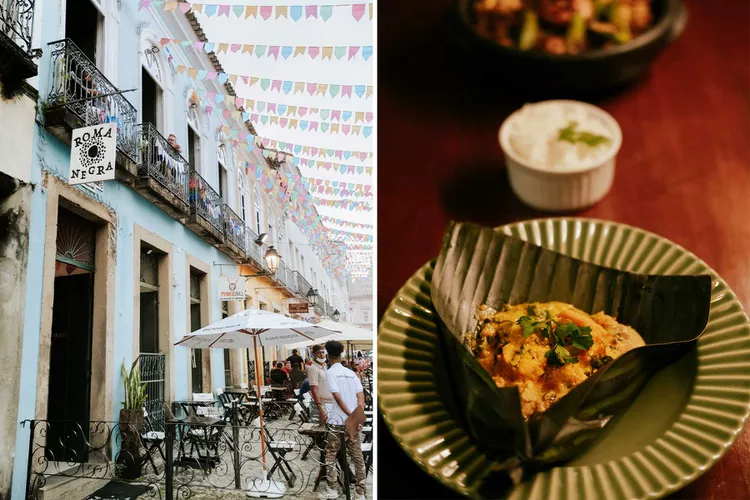Exploring the Culinary Traditions of Salvador, Brazil
The Sweet Welcome
Upon arriving at my hotel in Salvador, I was greeted with three pieces of cocada, a delicious coconut confection. The history behind this treat traces back to enslaved Africans who crafted cocada during their limited free time, blending grated coconut with brown sugar and water. This humble dessert has evolved but retains its rich story. At the luxurious Hotel Fasano Salvador, its deliciousness was complemented by a deep sense of heritage as I gazed out over the shores that once witnessed the arrival of the first enslaved Africans in Brazil.
Culinary Adventures Begin
Salvador’s vibrant atmosphere is a feast for the senses, filled with the rhythmic sounds of drums and the enticing smells of traditional dishes. On my first night, I dined at Roma Negra, where an all-Black staff under the direction of chef Severina Santana presented an array of remarkable dishes. The crab fritters, bolinhos de aratu, served with a delicate umbu jam, made for a remarkable start, followed by mulenga, a dish sacred in Afro-Brazilian culture. Prepared with ingredients like palm oil, spinach, and shrimp paste, mulenga is a divine blend of flavors served in banana leaves alongside coconut-milk rice.
Celebrating Afro-Brazilian Heritage
Chef Severina Santana views her restaurant as a tribute to her roots and the African heritage that significantly contributes to Salvador’s identity. As told to me, she seeks to highlight each dish, emphasizing that cassava, coconut milk, and azeite de dendê are staples in Afro-Brazilian recipes and share a legacy with similar cuisines from Central and West Africa. Santana invited me into her kitchen, where we created an earthy, fragrant interpretation of jambalaya, reinforcing the interconnectedness of Black culinary traditions across the diaspora.
The Role of Community in Cuisine
Salvador, Brazil’s first capital, historically played a crucial role in the transatlantic slave trade. After slavery was abolished in 1888, many descendants chose to stay in Bahia, resulting in a population with deep African roots. This rich history is ever-present in restaurants such as Malembe, co-owned by four Black women who focus on creating a welcoming environment for their community. Malembe embodies the spirit of cultural representation and inclusivity, with beautifully crafted cocktails that highlight Afro-Brazilian flavors.
Street Food and Cultural Preservation
The street-food favorite acarajé is another exquisite example of Afro-Brazilian culinary tradition, comprising black-eyed-pea fritters filled with rich pastes of shrimp and vegetables. Often found at stands run by women known as baianas, these fritters symbolize the blend of food and ritual in Afro-Brazilian culture. The family-owned Acarajé da Dinha is one such stand where eager customers gather to savor this semi-sacred dish, highlighting the critical link between cuisine and cultural heritage.
Reflection and Storytelling
My week in Salvador was filled with culinary delights, stimulating conversations, and moments of reflection. I realized that the stories of Black experiences in Brazil need to be told by their own voices. An insightful message from Daiane Menezes emphasized the necessity for Black people to take ownership of their narratives, reinforcing that we are the protagonists of our own stories. As I left Salvador, I carried with me not just recipes but a profound sense of cultural legacy and shared history.




